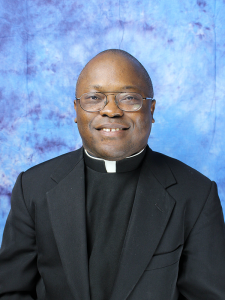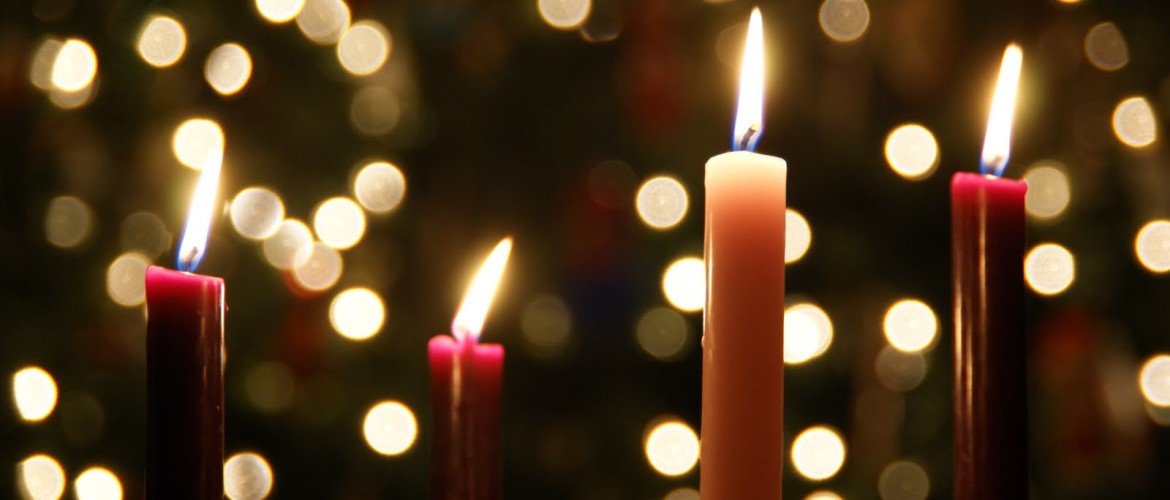By: Fr. Deogratias Ekisa, Archdiocese of Tororo, Uganda, Vice-Rector of Notre Dame Seminary
Have you noticed how early Christmas celebrations begin and equally how soon they end? For some people, Christmas lights and decorations go up right after Thanksgiving Day or even right after Halloween and so does the singing of Christmas carols. And then as prematurely as these celebrations began, so do they also prematurely end at midnight on December 25.
But according to the Catholic liturgical calendar, the Christmas season begins only on the evening of December 24th and goes on until the second week of January, on the Feast of the Baptism of the Lord. The four weeks preceding Christmas are the Advent Season. So, why do we have this discrepancy, between the liturgical calendar and the actual celebrations?
First, let me play devil’s advocate.
- To be fair, many of these anticipated celebrations of Christmas are not done by Catholics, but by secular businesses that promote their wares to boost their sales. Much of what is anticipated is more a celebration of the secular “holidays” that have only a tangential relationship with Christmas. And so there should be no expectation, that secular holidays follow the liturgical calendar.
- Even for those Catholics who follow their secular brethren in anticipating the celebration of Our Lord’s Birth and ending it abruptly, an argument could be made that what they do (decorating, caroling, shopping) is done outside the liturgy and is therefore not bound by the liturgical calendar.
- And then you have communities like schools that have to disperse before Christmas and cannot be together at Christmas. Why should they be deprived of this communal experience of Christmas, by having to rigidly stick to the liturgical calendar? What harm is there in a little Christmas partying before school closes, albeit during the Advent season?
These arguments might seem convincing, but that is because they are based in a philosophy of sheer pragmatism rather than one of Catholic sacramentality. For Catholics, visible signs are used to signify invisible spiritual realities, beyond the liturgy. Like adherents of Judaism, Islam, Sikhism and others identify their faith in external visible signs such as clothing and mores, Catholics can identify their faith by these external signs of celebrating the seasons. For the Catholic there should be a seamless flow from the liturgy to the world and back to the liturgy. The celebration of the liturgical seasons does not end in Church but is lived out in the world as well.
Each of the liturgical seasons is given to us to help us in our spiritual growth, like the growth of a plant, especially a tree. The really strong trees take years, even decades to grow. A tiny seed becomes a seedling; the seedling slowly becomes a plant; the plant then grows a stem with branches; and these in turn grow flowers which become the fruit that we harvest. Of course this plant needs nutrients, especially water and fertilizer. But the plant also needs a change in seasons: the Spring to germinate, the Summer to grow, the Fall to shed its leaves and the Winter to hibernate. And then the cycle starts all over again, as the tree grows taller and stronger. Without the variety of seasons, the tree would remain stunted and would never grow.
And so, when Catholics skip one or more of the liturgical seasons, we also miss out on the opportunity to be nourished by the spiritual gifts of that season. By skipping over Advent and jumping straight into Christmas, we miss out on what the less glamorous Advent has to offer.
- Christmas clearly celebrates one of the most important mysteries of our faith, the Incarnation of Our Lord. For this reason Christmas is not celebrated just for one day, but as an Octave – that is for eight days – an Octave that ends with the Solemnity of Mary, the Holy Mother of God on January 1st.
- But just like Lent prepares us for the other great mystery (Paschal Mystery) of Easter, Advent prepares us for to celebrate Christmas. Advent prepares us for Christmas by having us reflect on both the First and the Second Coming of Jesus. The theme of Advent is really one of waiting, expectation and hope. The liturgy with its readings, hymns, sobriety teaches us to wait in hopeful expectation, while keeping ourselves busy so that the Lord will find us ready. These four weeks of Advent tell us where we are going by focusing on the end-times, so that our present times can be lived well.
If the immediate goal of Advent is to prepare for a worthy celebration of Christmas and the long-term goal to prepare us for the end times, the lagniappe is that from Advent we learn patience. As a society we are terribly impatient. We don’t like waiting in line at the Post-Office, the Doctor’s Office or the Motor Vehicle Office. We don’t like waiting in traffic, at the store, or getting on/off a plane. When Children travelling on a long family trip keep asking “are we there yet,” “are we there yet,” they are saying what we who are grown up are afraid to admit; that we are an impatient bunch. That is why I argue that a proper celebration of Advent will teach us how to wait patiently and productively, besides its more lofty spiritual purposes.
Let me offer some suggestions as to how we can celebrate Advent, even as we have to live in the real world and especially in a culture of tail-gating.
- I know of some schools that defer their main Christmas celebrations to the New Year, the first week of school in January, which after all is still within the Christmas season. Some transfer their festivities to Epiphany, another important event of the Christmas mystery.
- Others anticipate some of the Christmas festivities; but they try to do it as close to Christmas as they can and they do it in a low-key manner.
- And of course certain preparations for Christmas have to be done beforehand. Shopping for Christmas gifts and sending out cards has to be done sooner rather than later. The Christmas decorations and the crèche will not put themselves up. And preparations have to be made for the Christmas Mass and meal.
And yet still these exceptions should not make the rule. As parents, we don’t let our children as a rule skip over the less delicious vegetables and go straight to the dessert; if we did so all the time our kids would have really big smiles, but would also be quite malnourished. Similarly the Church teaches engaged couples to wait for their wedding night to make full use of the goods of marriage. Can we then also give Advent its full due as we wait in expectation for Christmas joy?
About the Author: Fr. Deogratias Ekisa, Archdiocese of Tororo, Uganda, Vice-Rector of Notre Dame Seminary

B. Phil (Makerere University – Kampala), M.Div (Notre Dame Seminary),
S.T.L. (Sant’Anselmo – Rome), S.T.D. (Sant’Anselmo – Rome).
A priest of the Archdiocese of Tororo – Uganda, Fr. Deo was ordained in 1998 after his seminary studies at Notre Dame Seminary.
He then served for seven years as Secretary to his bishop and Chancellor of the diocese. During that time he also served for four years as Vocations director and Master of Ceremonies of the diocese and three years as Pastor of Queen of Peace Parish in Kachongha.
After his studies in Sacramental Theology in Rome, Fr. Deo began serving on the faculty of NDS in 2009. At NDS Fr. Deo serves as the Vice-Rector, Director of Human Formation, a Professor of Sacramental Theology and Liturgy and a Formation Adviser. He is also the Director of Seminarians for the Tororo seminarians studying at NDS.
In addition to his training and experience as a priest and formation advisor, Fr. Deo hopes to bring to Notre Dame Seminary the experience of the African Church and culture. In addition to several native Ugandan languages, he speaks English and Italian.
Office Location
St. Joseph Hall – 1st Floor
Disclaimer
All opinions published by the authors on this blog are solely those of the authors. Although the goal is that they should, they do not necessarily express the views and opinions of the Archdiocese of New Orleans, Notre Dame Seminary, the Church, or their respective dioceses and bishops.
Notre Dame Seminary and the Archdiocese of New Orleans are not responsible for the comments of commenters, although every effort will be made to remove offensive comments.
If you should find an error or offensive content, please email the NDS Blog editorial team.

